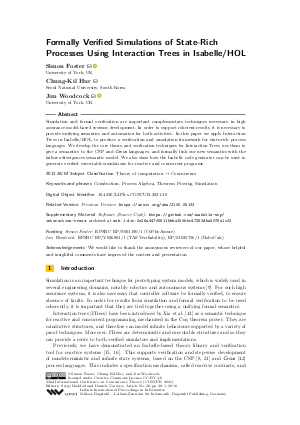LIPIcs.CONCUR.2021.20.pdf
- Filesize: 0.91 MB
- 18 pages

 Creative Commons Attribution 4.0 International license
Creative Commons Attribution 4.0 International license

























Feedback for Dagstuhl Publishing